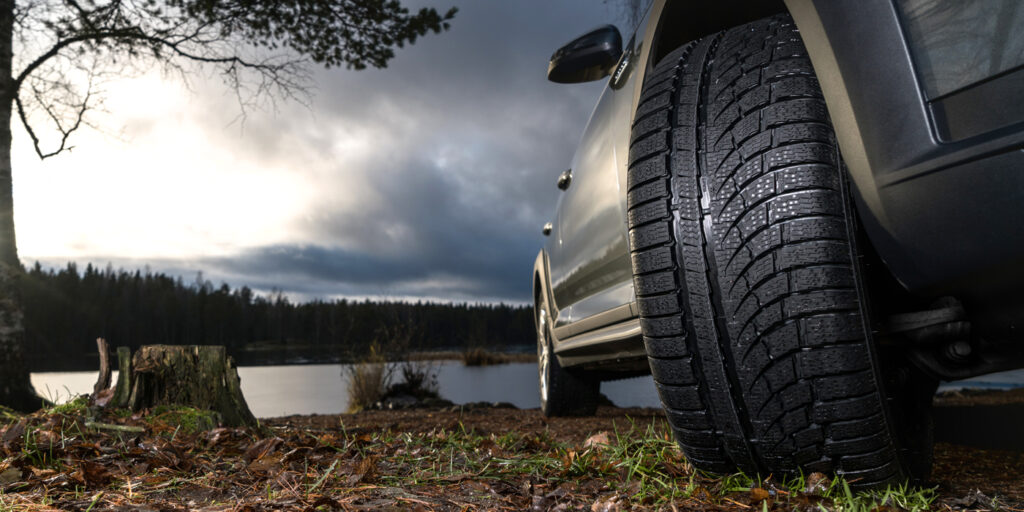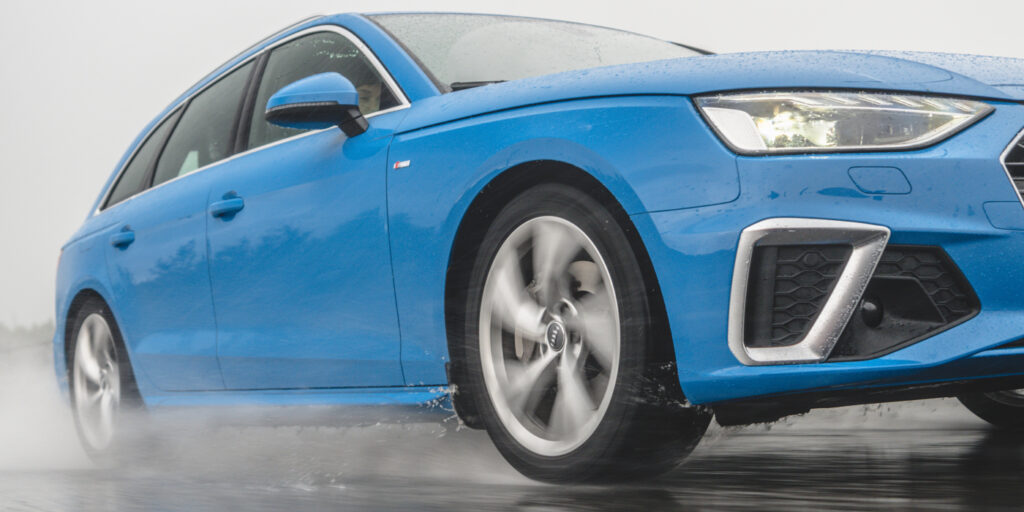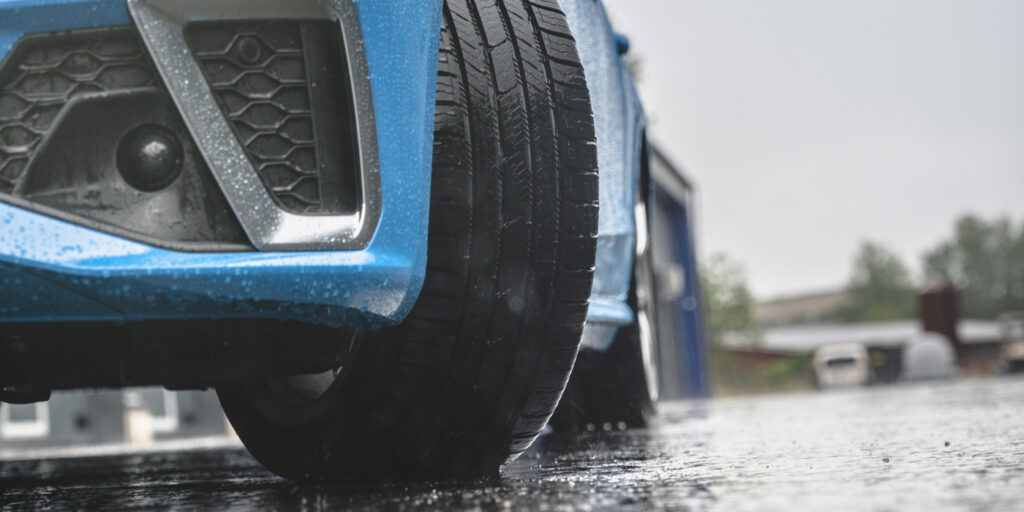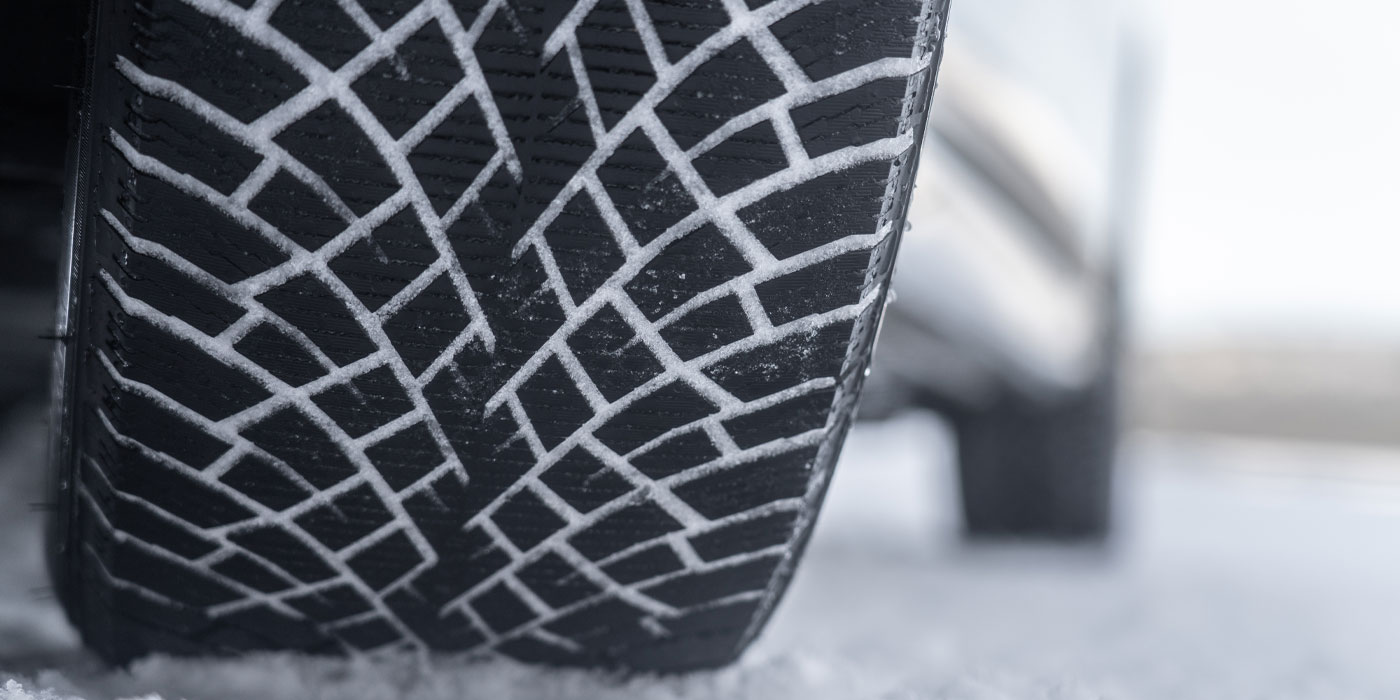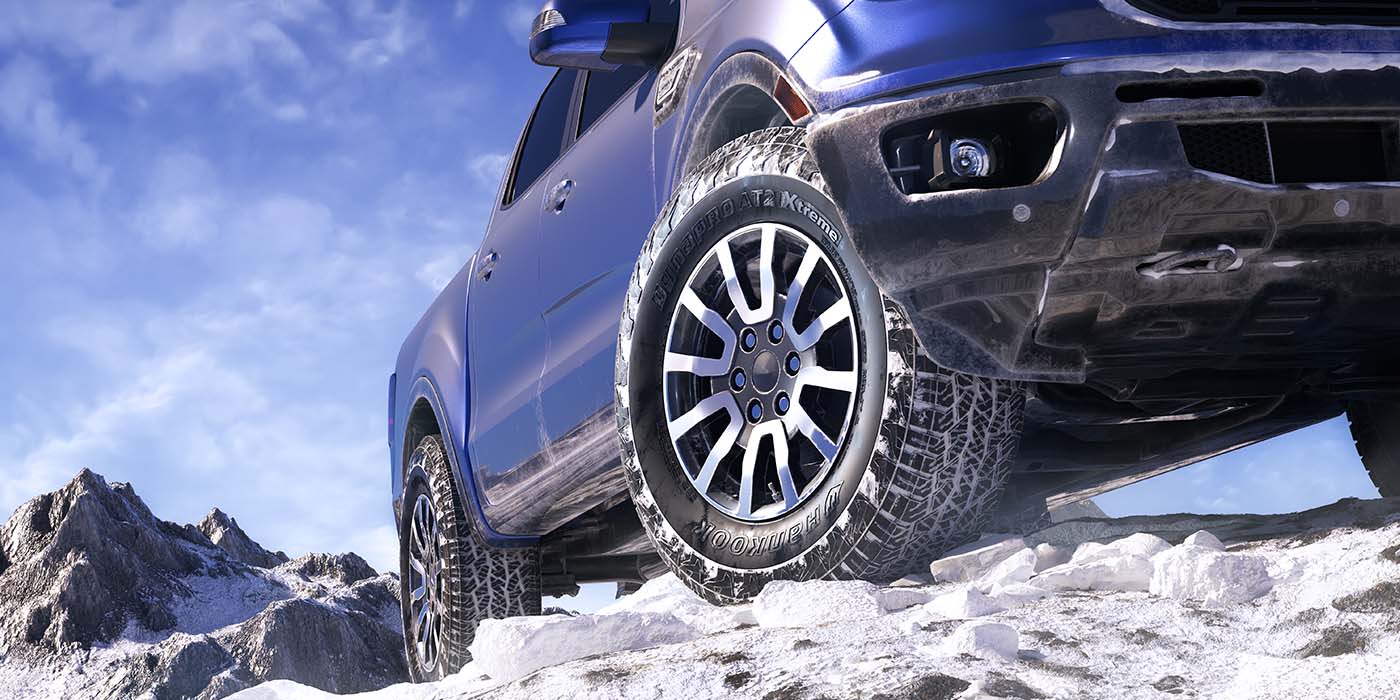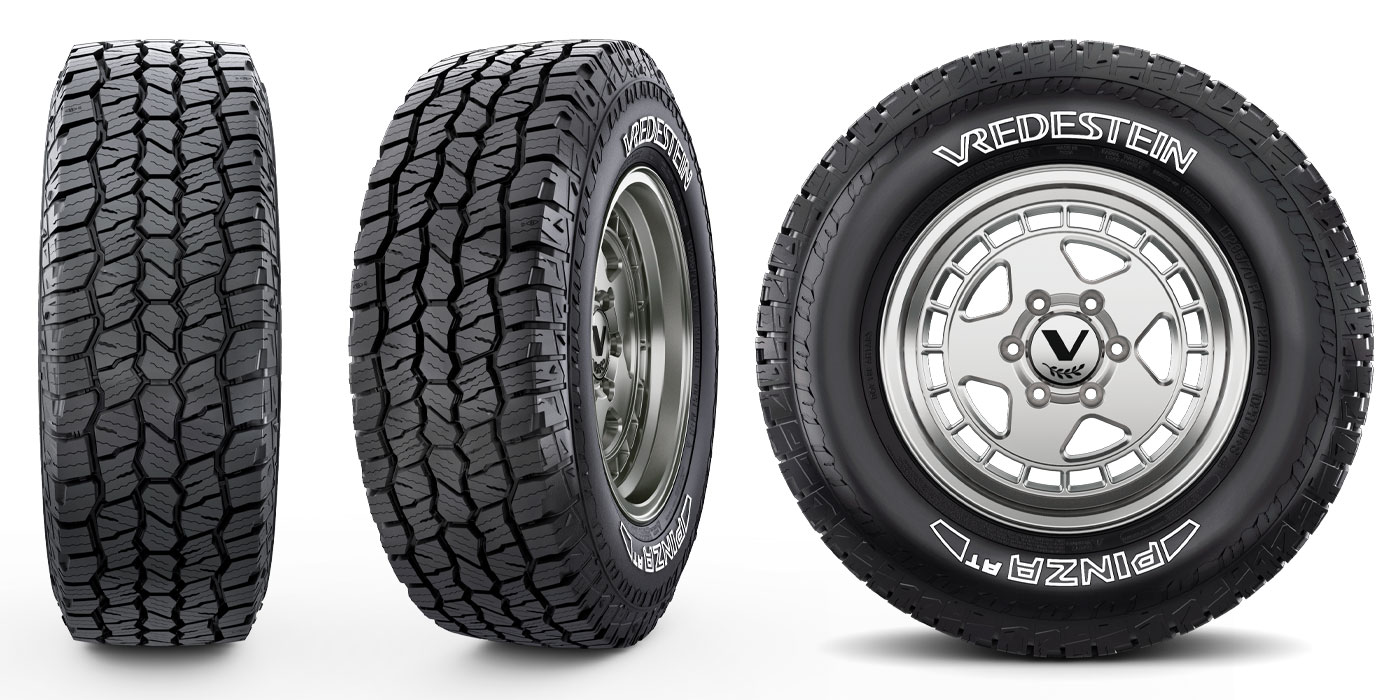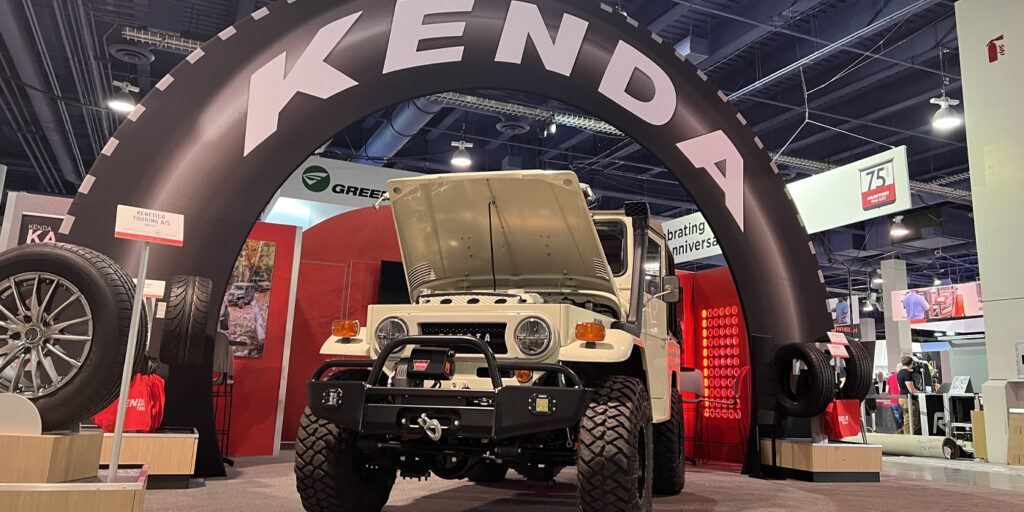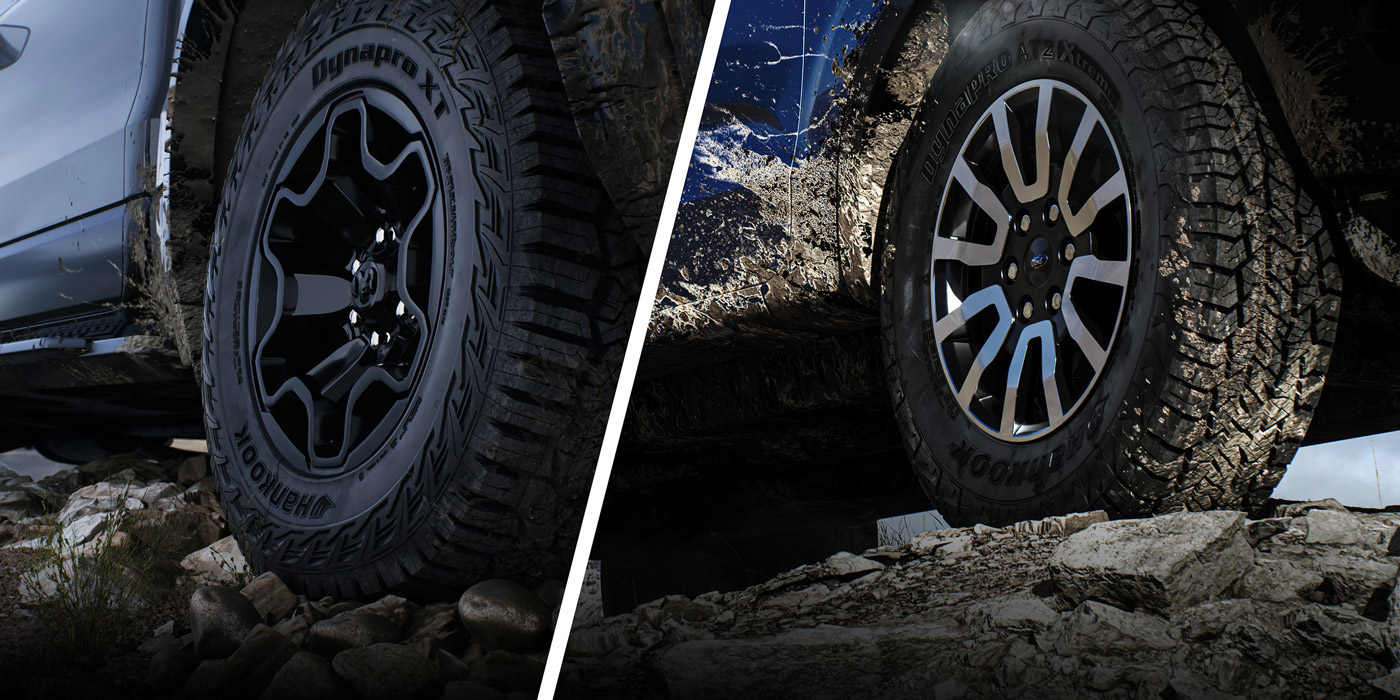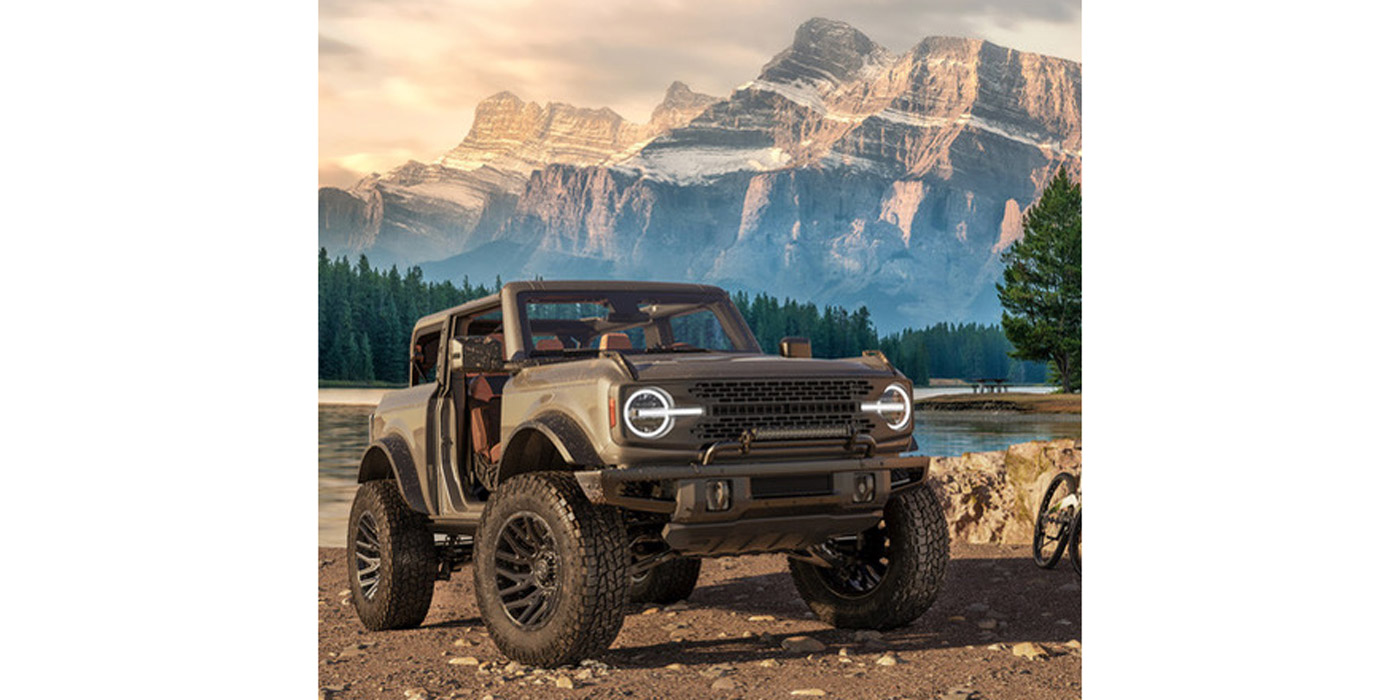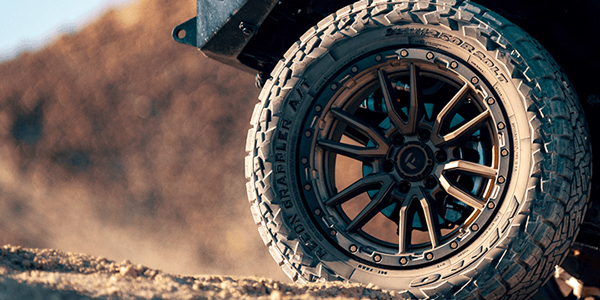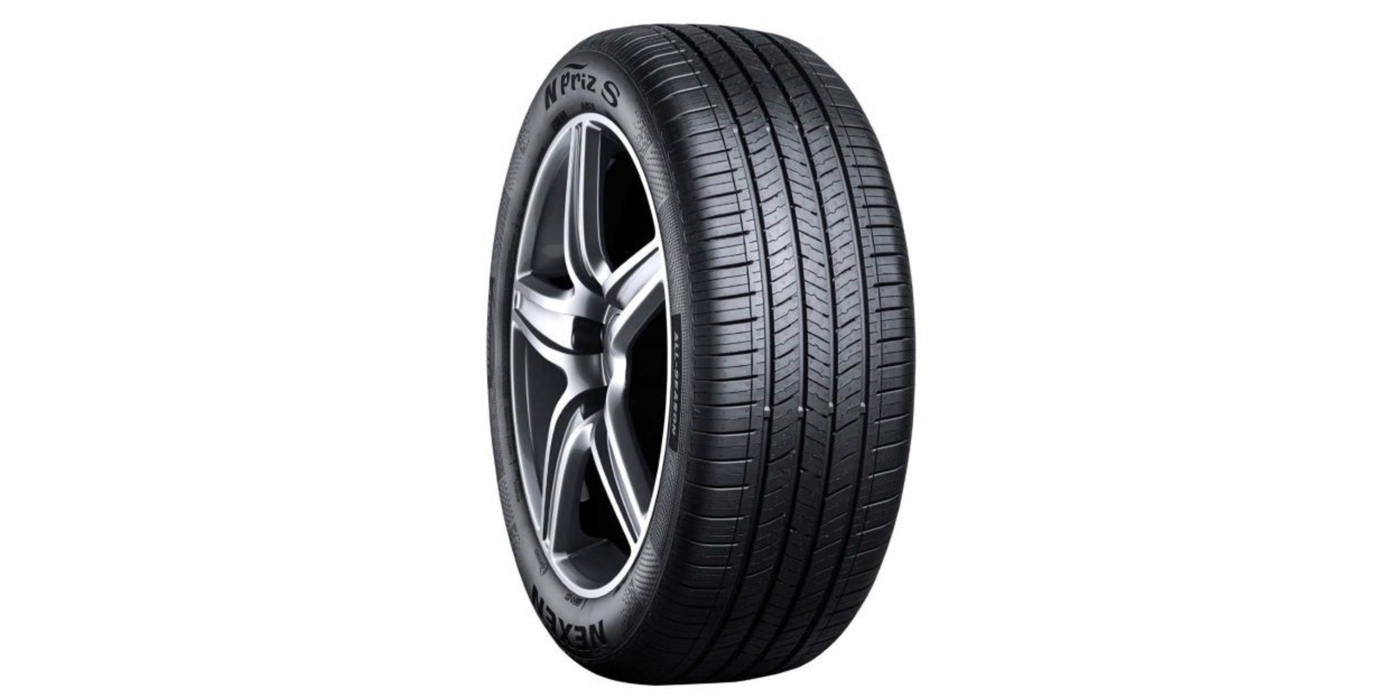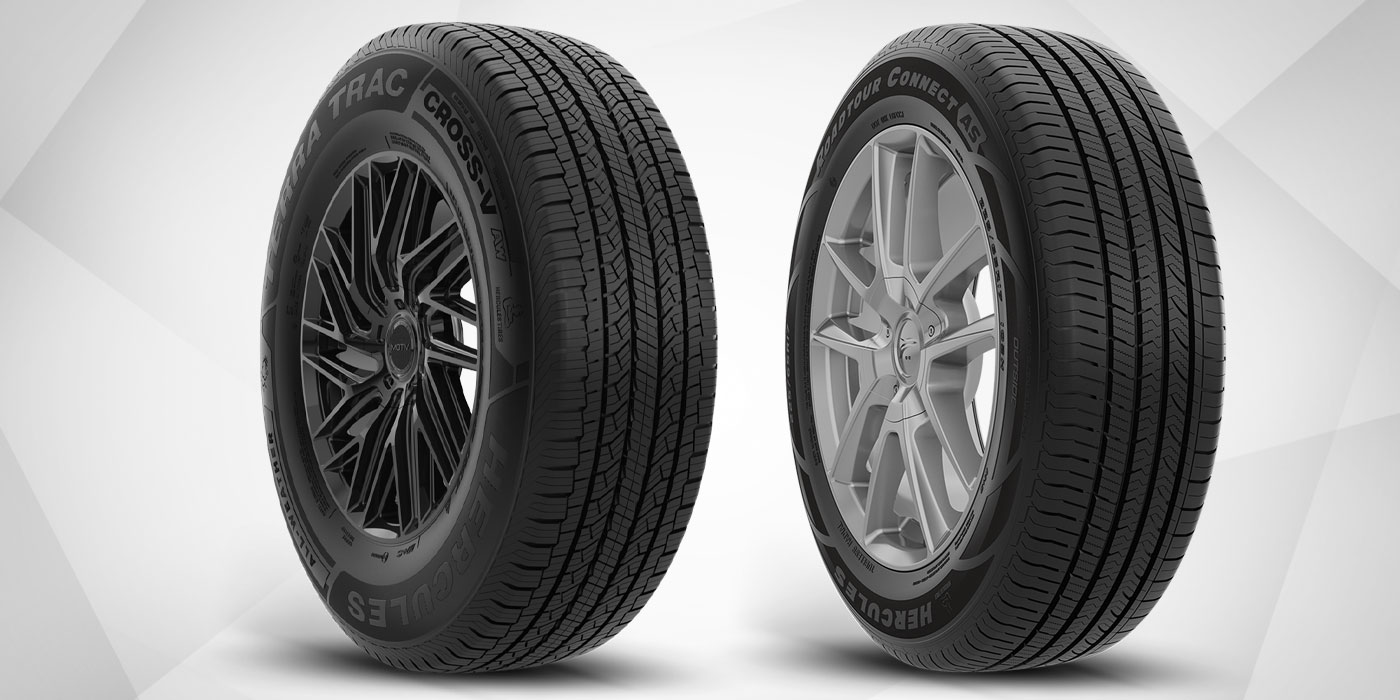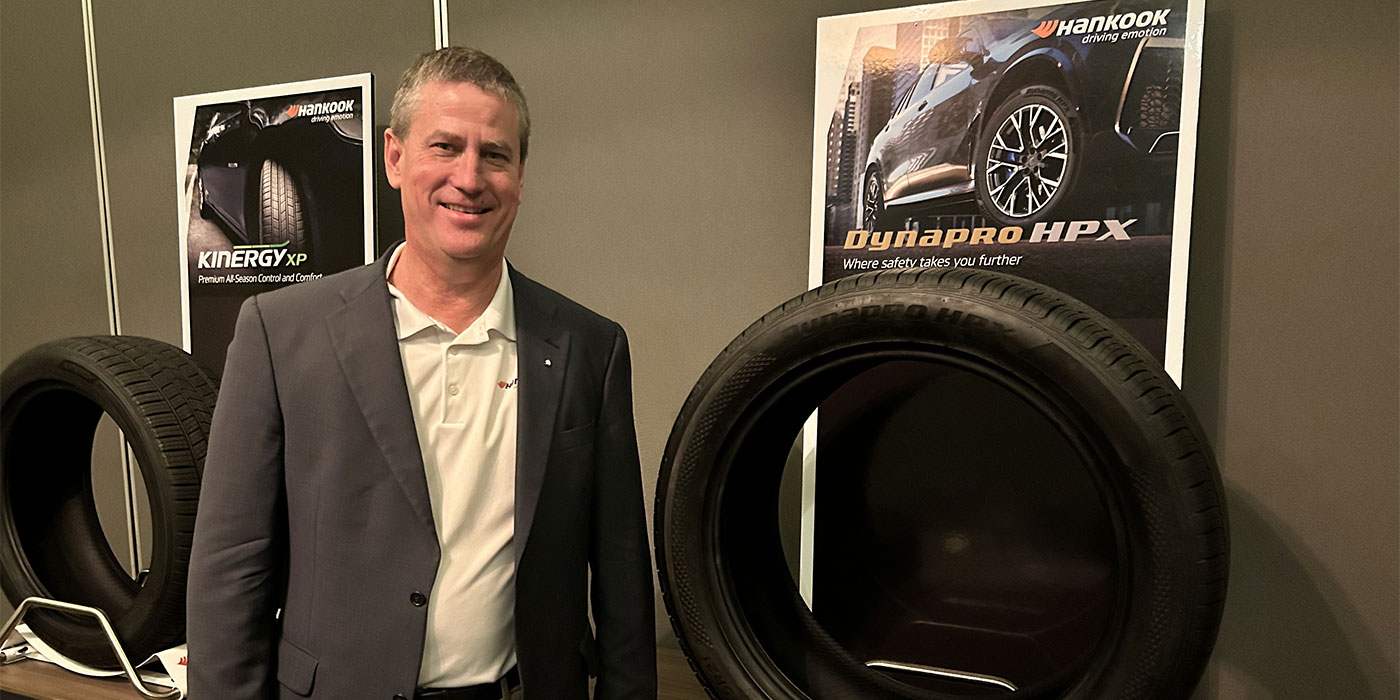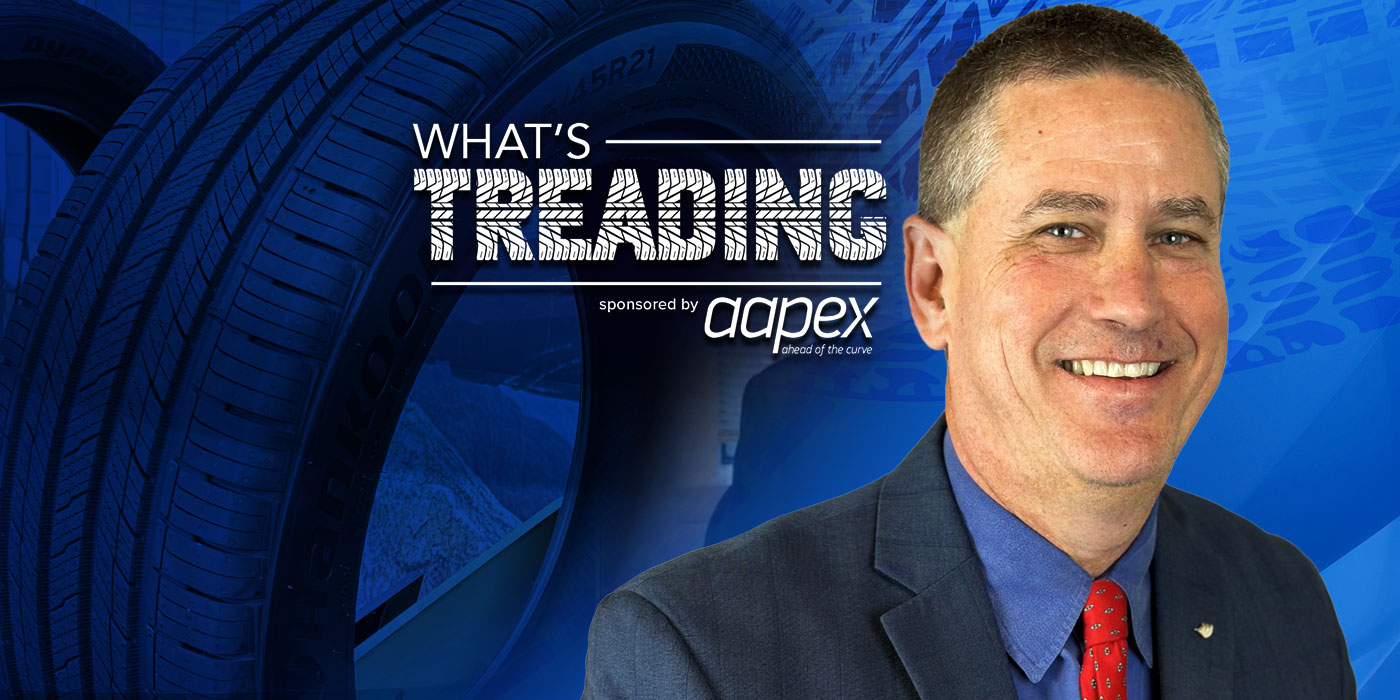All-season tires are only built for all four seasons if you live somewhere like Arizona or Florida.
It’s an irony that has confused drivers for decades. All-season tires are an exceptional choice for drivers who crave ultra-high performance, high mileage or a warm-weather replacement for their winter tires, and the accompanying safety and performance benefits they provide.
But all-season tires become less pliable when temperatures hit 45 degrees. Their treads aren’t designed to carve through snow or grip on ice. They’re a major reason a majority of drivers say they don’t trust others to drive safely in winter conditions. It’s not just about ability; it’s about having the wrong equipment.
A year-round alternative has emerged in the past two decades: the all-weather tire. Certified with the three-peak mountain snowflake but designed for year-round use, all-weather tires provide better snow grip and handling than a tire without that certification, while maintaining similar spring and summer performance levels of all-season tires, such as good wet grip and wear properties.
All-weather tires allow consumers to dress for the weather. Instead of choosing between a parka and short sleeves, they provide a balanced option for occasional winter weather—a light jacket, if you will.
Some industry experts have argued the all-weather tire is just a branding choice and not worthy of significant attention. And, drivers could be forgiven for their confusion: don’t “all-season” and “all-weather” sound like the same thing?
Answering that question could provide customers with benefits tailored to their weather conditions and driving demands—a year-round driving solution that builds loyalty for your shop. All-weather tires possess unique properties that set them apart from all-season tires. They allow tire manufacturers to expand consumers’ options and meet their climate and performance needs. Consequently, they allow dealers to grow.
Different Capabilities
Not long after Howie Fetzer started selling all-weather products at his Connecticut tire shop, a woman pulled up in an Audi TT.
“I want the tires my girlfriends have been talking about,” she said.
“I knew we were really on to something,” Fetzer said recently. Twenty years later, all-weather tires generate most of his shop’s revenue, replacing an all-season product mix that wasn’t as well-suited to his customer base.
All-weather products aren’t an adequate substitute for dedicated winter tires in extreme winter conditions, but they’re a better answer for drivers who mistakenly believe all-season tires are an ideal choice for challenging winter roads. That’s because all-weather tires should possess the three-peak mountain snowflake (3PMSF) certification that signifies they perform better on treacherous winter roads.
Premium all-weather tires achieve superior winter performance by having modified compounds and specialized tread patterns. Their ability to navigate winter roads isn’t just another feature; it’s a defining characteristic that sets all-weather products apart from all-season.
All-weather tires also rely on compounding to provide that safety difference—a dual-performance rubber mixture flexible enough to handle temperatures much colder than an all-season tire, but durable enough to provide better tread life in warm weather than a winter tire (which shouldn’t be driven in summer)—all while offering safe wet grip.
All-weather tires come in either asymmetrical or directional tread designs. Both designs offer unique attributes to address winter grip and wet and dry handling, while keeping noise levels low and tire wear even throughout the life of the tires. While one design isn’t better than the other, manufacturers have taken various approaches to bring the best possible product to the consumer—and results also vary. In our view, some manufacturers choose to increase winter properties for regions that see more snow and ice, while others focus on strong wet grip properties for areas that see more rain during winter months.
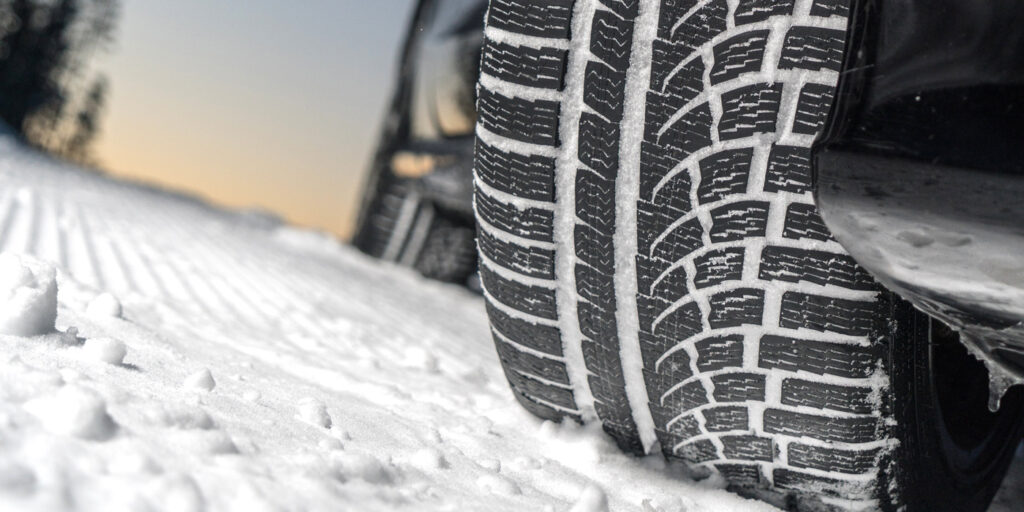
Who Should Drive an All-Weather Tire?
Dealers have an opportunity to clearly differentiate all-weather products from all-season tires, widening drivers’ options and letting them tailor the choice to their needs.
Who benefits from an all-weather tire? Here are a few criteria:
- Those who drive in occasional winter weather, but not conditions severe or frequent enough to justify buying a dedicated winter tire—which is always the safest option for severe winter weather.
- People who visit winter-weather destinations—perhaps because they live near mountainous areas or frequently travel north during fall and winter.
- Anyone who wants the peace of mind to know they’re covered in case of surprise snowfall.
Many of Fetzer’s Connecticut customers have bought several generations of all-weather tires from him over the years, and they now make up 80% of his product mix.
Who Should Drive an All-Season Tire?
All-weather tires aren’t for everybody. Drivers who crave the thrill of the road may opt for an ultra-high-performance all-season or summer product. Consumers who prioritize high mileage might be better off with a tire that has a longer-lasting compound. And, drivers who value safety in extreme winter conditions should keep their winter tires and use all-season tires as an effective complement in spring and summer.
And, of course, there are areas of the United States that rarely see wintry weather or cold temperatures.
Tire manufacturers can also focus on innovative tread patterns and silica compounds that make warm-weather driving safer and more enjoyable—properties that improve grip and handling in heat and rain, decrease road noise and enhance wet braking. And, of course, durable all-season compounds tend to last longer than all-weather products. While I don’t believe high mileage is the best indicator of a high-quality tire, we can’t ignore that it’s an important factor in many customers’ purchase decisions, even as an all-weather tire’s more pliable compound may provide better safety in challenging winter conditions.
Some tiremakers are also prioritizing sustainability in their all-season product portfolios. New tread compounds are coming with lower rolling resistance, which improves fuel mileage and reduces emissions.
By more firmly defining the tailored technology and benefits of all-season tires, you can provide consumers with a menu of options they can prioritize as they make their purchase decision.
Making the Difference
Selling a tire isn’t as simple as it used to be.
The tire industry is more competitive than ever, and that has led to innovations, like all-weather tires, that provide unprecedented benefits for drivers.
By embracing all-weather products as an important alternative for drivers who live in unpredictable climates, dealers can give customers safety benefits they might not expect.
The product is different enough to demand it. Customers are important enough to deserve it. And like Howie Fetzer, your growth could be even more promising if you embrace it.

